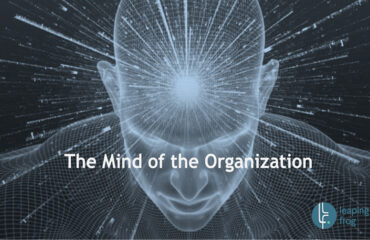
Welcome to the Barnum & Forer Effect
Explore the intriguing world of the Barnum and Forer Effect, where personalized insights often feel remarkably accurate. Discover how this psychological phenomenon influences perceptions and decisions. You attended an online personality test, and as you perused the report, you marvelled at how uncannily precise the statements are! There is some apprehension about the ambiguity of the language, but still, you find yourself astonished at how applicable the descriptions are about yourself.
In the 1950s, psychologist Bertram Forer, in a fascinating experiment, conducted a personality test with 39 of his students. He told the students that this test would result in a personalised personality report. A week later, he gave their personality reports separately and asked them how the description applied to their understanding of themselves. In reality, each student was given the same report without letting them know. All the reports had the same statements. However, in his briefing, Forer mentioned that the reports were highly personalised.
There were many statements, like –
- You have a great need for other people to like and admire you.
- You have a tendency to be critical of yourself.
- Sometimes you have serious doubts about whether you have made the right decision or done the right thing.
- Some of your aspirations tend to be pretty unrealistic.
- Security is one of your major goals in life.
Imagine how the students would have rated their reports. Yes, you guessed it right. All the students agreed to their reports without knowing that all the reports were the same. And that correctness was reported by the students as 84%.
Looking at these statements, how closely do they relate to your personality? I would assume that it is very close, and it seems that the statements are a reflection of your personality. Look at the first statement. The need for inclusion is a natural human phenomenon. Though it may vary in intensity, there is an unconscious need to be liked and included. And because that is a need somewhere, we tend to agree with the statement. Yes, it seems to be true for me. In that case, all the statements would relate to us in some way.
Welcome to the Barum and Forer Effect! The Barnum and Forer Effects are slightly different but still related. In essence, it is about our cognitive biases, which leads people to believe that personality descriptions are accurate when they could actually apply to anyone.
Various layers of cognitive bias may play around when we tend to agree with certain statements that describe us.
We tend to agree to and believe in statements based on personal feelings rather than facts. We tend to accept positive statements as a description of ourselves and try to figure out in some ways and instances that support the statement in our favour, while that may not be true. Subjective validation, or our preference for likeability, is a significant factor in the Barnum Effect.
Another bias is our tendency for selective preference of information that we relate to ourselves and we believe what we are. So, we tend to believe in information that matches our expectations about ourselves and validate that information. And in that process, we delete information that is not fitting to our belief of ourselves. Imagine you are on your phone, and suddenly a message pops up with some zodiac predictions for the day. It says – “today will be a day of accomplishments”! so what happens to you? You suddenly become motivated because that is what you want to hear. And what happens when there is a negative message? That may impact you to a certain, but the dominant tendency may be to ignore that. This may be attributed to our bias for preferability for information that we believe to be true and are constantly looking for validation.
The statements in a horoscope and many of the personality assessments are designed in a way that promotes positive words and incidents. That may be because there is a general tendency of mentally healthy human beings to focus more on positive words and incidents from their memory. This is called the “Pollyanna Principle” based on the character from the book “Pollyanna” by Eleanor Porter. This principle promulgates that, in general, people have a tendency to remember pleasant items more accurately than unpleasant ones. Studies in this field also indicate that at an unconscious level, the mind always tends to pay attention to the positive, while the conscious mind is more aware of the negative aspects of an incident or any incident that is ought to happen. This unconscious bias is similar to the Barnum Effect.
So next time you look at an assessment, look through a different lens! Pay attention to your cognitive bias and reflect deeply before you actually agree or disagree to the statements that describe your personality. You may be able to look at this more objectively and not get carried away. Let that evoke the question – is that the real me? does it really stand for me? Is that my identity? I really can’t make a difference by being like everyone else!!
Connect with me: sanjay@leapingfrog.in
More on my work: www.leapingfrog.in
Follow me: https://lnkd.in/dbr6KBmp




